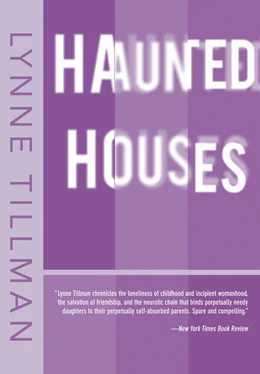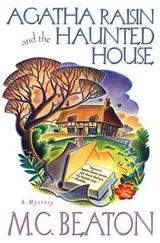Felix was in one of his high German moods, or so Jane put it. His girlfriend was coming back from Spain. Jane herself was nonplussed, not being, in her mind, anything like a girlfriend. “I’ll handle it,” he told her. “What’s there to handle?” she answered. “Let’s go see a movie at the museum.” Felix was looking at his foot and muttering to himself. “This is boring,” Jane protested. “It’s raining, you’re looking at your foot, I have to read some stuff I don’t want to…” “And…?” Felix asked. “And nothing.” There were a few, maybe twenty more minutes of this kind of nothing that occurs between people who spend a great deal of time together and probably shouldn’t. “It’s all dead in here,” Felix nearly shouted as they went around on the second floor — the permanent collection — of the museum. “Dead.” There’s nothing permanent was his modernist point, a point not at all lost on Jane, the way Felix considered sex was. Felix railed against museums, it was still raining, Jane was barely listening, and they went into the museum’s auditorium to watch some Bruce Conner films. “The first time I ever came to see a movie here I was with Jimmy,” Jane whispered as the lights went down. Felix sank deeper into his seat and lit a cigarette. They were kicked out right after. “See those uniforms those men — those doormen — wear, look at those guys, Jane.” “I don’t want to look at uniforms. Stop trying to distract me from being pissed off at you, you asshole.” Felix walked defiantly up to one of the Plaza doormen and started a conversation with him. In German, as the doorman had come not so long ago from Berlin and worked in a large hotel there. He told Felix that rich people were the same the world over.
That anyway was what Felix told Jane the doorman said, but Jane withheld belief. “You never really believe me,” Felix told her, “I can feel that and it’s because you’re from the suburbs of this shitty country.” “And where are you from — Switzerland — a bunch of mountains, some chocolate, and a clock. A lot of clocks. You think being an artist isn’t middle class?” was Jane’s final rejoinder. They went downtown silently together. She got off before him and went back to her apartment. He continued for a few more stops and went to his storefront and there she was, his girlfriend Andrea back from Spain. It was nearly the end of winter, that’s why it was raining so much.
Jane hated spring, when the air smelled so alive and people took off their coats and their figures showed. Spring and summer, the terrible times to be fat. “You’re not fat, Jane, you’re overweight.” Her Uncle Larry was the only one she allowed to tease her. He was even fatter but he was fun. “Bugsy Siegel wasn’t going to allow the syndicate to build another hotel in Vegas unless they bailed him out. He was going to squeal. They got him on a train,” Larry went on. He’d told her the story before but it didn’t matter. “Hemingway was a bum. We fished together around Cuba. Think I’m fat. He never stopped drinking.” They were driving around Manhattan in Larry’s convertible, a pale yellow Buick with a white top. “And what about sex? I won’t tell your father,” he said and puffed on his cigar. “There’s nothing to tell, Uncle Larry. I think I’m in love with someone who’s not in love with me and someone who likes me — that way — it never even occurs to me,” Jane said and looked at the Flatiron Building, with its funny triangular shape. “The whole family’s crazy,” Larry said. “No reason you should be an exception but listen to me, kid. Try to have a good time. I’m just learning that. There’s not too much else. Have a few laughs.” The sun was setting as he drove her back to her apartment. The air was heavy with nostalgia. “Take it easy,” he said at her door. “Look at your father — he worries night and day — and where does it get him. There’s no percentage in worrying.” Larry still played the horses even though business was worse than ever. “You’ve gotta have some fun in life, right?” Jane hated spring.
Mark read aloud from his notebook: “Once I was in a sentimental hospital. The nurse’s uniform was starched, and her hands soft, the fingers wrinkled, as if she’d been in the bathtub all day long. When I cried out, she heard me, rushing to my bedside, a line of concern etched into her noble brow. A hand quickly laid on my feverish forehead, she soothed me and restored my soul.…” Mark repeated “my soul” and faltered. “They talked about the soul.”
Mark dangled, like a pendulum, over sentimentality and cynicism, his direction changing, reflecting a kind of weather. While he was sensitive, it was a sensitivity not unlike that experienced under laughing gas. You’re numb and don’t care about anything and you don’t know if you’re able to control your facial muscles or not. When pain comes, in this indifferent state, it is bad, worse, because you have been lulled into a kind of inviolability, Mark’s favorite word, next to epicene. Most of the time you don’t feel anything, as if encased by a prophylactic. All this led him to the Pre-Raphaelites. He told Grace that pubic hair was absent from their paintings of nude women, that it was discovered later, that all the hair was on top, mounds and mounds of it. Grace slid off the barstool and walked to the jukebox, where she watched the record turn. Mark was rejected by some men because they were straight, he rejected others because they were too serious, and some rejected him because he was too much of a woman, or not enough of one. “I’m a displaced person, a country without a man. A guest in my own body.” “You have beautiful eyes,” Grace told him. “The doorway to the ignored soul,” he muttered. His Bible, his comfort, was “Notes on Camp,” which he insisted Grace read as a way to know him. He told her some people would call her a fag hag. She said, “They can go fuck themselves.” He said, “I love you when you’re brutal.”
Silence Is Golden hung over the sink in Ruth’s kitchen, its yellow walls and shelves, its linoleum floor; her domain. It was the room from which she wrote Grace those occasional letters, during which time she glanced every now and then at the sign above the sink, which restored to her something that might have been lost for a moment or two. Smoothing her housedress under her as she sat down at the circular table, chosen because you could fit more people around it and it meant harmony, she took out her letter paper with her name at its top, her married name she always added silently, and touched the raised letters. Dear Grace, Your father and I worry that…The coffee maker gurgled, and Ruth walked over to the pot, reminding herself of that woman in the TV commercial. Why did that woman wear pearls around her neck when she was washing the dishes? Ruth touched her bare skin, where a necklace could have been, and felt sensible.
On a cold Providence morning Bill ran around the campus, lonely for Grace. She hadn’t called him in two weeks and the last time she saw him she told him she couldn’t handle his problem. In the distance two shapes were clinging to each other, and as if life weren’t bad enough, it was Grace sticking her tongue into some guy’s mouth he’d never seen before, and she probably hadn’t either. Look at that. Bill ran in the opposite direction to a diner where he ordered a cup of coffee and saw nothing. Blind, he drank it and asked himself why God would bother with such petty details like his heart when there were wars, famines, tornadoes that needed attention. He thought about what going off to war would do at a moment like this, and wished he felt like dying for his country or being a mercenary instead of sitting around bleeding for what might appear to anyone as no reason. A girl.
Читать дальше












